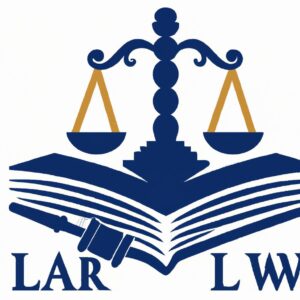
phrase god speed
Discover the origins and meanings behind the phrase ‘god speed’ in this insightful article. From its ancient roots to its modern usage, delve into the fascinating history of this well-wishing expression.
Blog

Discover the origins and meanings behind the phrase ‘god speed’ in this insightful article. From its ancient roots to its modern usage, delve into the fascinating history of this well-wishing expression.

GST tax is to be paid when goods or services are purchased within the country. It is a value-added tax that is collected at each stage of the supply chain, ultimately reaching the end consumer. Understanding when and how GST tax is paid is crucial for businesses and individuals alike.

Trust conservator is a role that requires a high level of responsibility, ethics, and dedication. Professionals in this role are entrusted with protecting and managing assets for the benefit of others, ensuring trust and security for all involved.

Credit card companies have systems in place to monitor account activity and to detect when a cardholder passes away. This helps prevent fraudulent use of credit cards and ensures proper account closure.

When inheriting a timeshare, some individuals may choose to refuse the responsibility due to financial or personal reasons. This decision can have long-lasting implications on family dynamics and future estate planning.

The compensation for a personal representative of an estate varies depending on state laws and the complexity of the estate. Understanding the factors that determine pay is crucial for both executors and beneficiaries.

Probate happens when a person dies and their assets need to be legally distributed. It ensures that the deceased’s debts are paid and their belongings are passed on according to their will or state laws.

Sole aire to estate” is a legal term that refers to an individual who is the exclusive inheritor of a deceased person’s entire estate. This designation ensures that the chosen heir receives full control over all assets and properties left behind by the deceased.

Letters of testamentary are crucial legal documents that grant an executor the authority to manage a deceased person’s estate. These letters are issued by the court and provide the executor with the necessary powers to carry out their duties.

A legal trust document is a binding agreement where assets are held for the benefit of another party. It ensures property distributions are carried out according to the grantor’s wishes.

A codicil will is a legal document that allows someone to make small alterations to their existing will without having to completely rewrite it. It is a useful tool for updating beneficiaries, assets, or any other specifics in a will.

To start a living trust in New York, you first need to determine what assets you want to include, appoint a trustee, and create a trust document outlining your wishes. Additionally, make sure to consult with a legal professional to ensure everything is in order.

When you’re single, figuring out who your next of kin is can be confusing. In the eyes of the law, it’s typically a close blood relative, but you can always specify your preference in legal documents for peace of mind.

Building a trust fund for your child can provide financial security for their future. By setting aside regular contributions, choosing appropriate investments, and seeking professional advice, you can create a nest egg that will support your child’s dreams and aspirations.

Wondering if you can put a Roth IRA in a trust? While technically possible, it’s not always recommended due to complex rules and potential tax implications. Consult a financial advisor for guidance.

A will and testament is a legal document that ensures your wishes are carried out after death. It dictates how your assets will be distributed and who will care for your dependents. It is essential to have one to avoid any confusion or disputes among family members.

Ancillary estate refers to property owned in a different state from one’s primary residence. Understanding the laws and regulations surrounding ancillary estate can help ensure a smooth estate planning process.

When inheriting a house with siblings, tensions can arise over ownership. Learn how to diplomatically buy out a sibling’s share in the inherited property to avoid family disputes and ensure fair distribution of assets.

Testamentary trusts offer numerous advantages, including the ability to carefully control the distribution of assets, provide for loved ones with special needs, and minimize estate taxes. They offer peace of mind and security for beneficiaries.

Arranging a funeral can feel overwhelming, but it’s a way to honor and remember a loved one. From choosing a funeral home to selecting flowers, music, and readings, there are many details to consider. Let us guide you through the process with our expert tips and advice.

When it comes to real estate transactions, many people often confuse the warranty deed with the deed itself. However, it is important to understand that the warranty deed is just one type of deed that provides certain assurances and protections for the buyer.

While both a last will and testament and a trust dictate who will receive your assets after you pass away, they are not the same. A will is a legal document that outlines your wishes, while a trust is a separate legal entity that can hold assets for beneficiaries.

Inheriting a house with a reverse mortgage can present a unique set of challenges and opportunities. Understanding the terms of the loan and the implications for your inheritance is crucial in navigating this complex situation.

Leaving your home to your child can be a complex process, but with careful planning and consideration, you can ensure a smooth transition. From creating a will to discussing your intentions with your family, there are several steps you can take to make sure your wishes are carried out effectively.

Probate in New York can be an expensive and time-consuming process. From court fees to attorney fees, the cost of probate can quickly add up. It’s important to understand the potential costs involved before deciding to go through probate.

Selling inherited real estate can be a complex process, fraught with emotional hurdles and logistical challenges. From navigating probate issues to finding the right buyer, it’s important to approach the sale with both sensitivity and practicality.

When dividing an estate, the term “per capita” in a will means that each individual will receive an equal share of the assets, regardless of their relationship to the deceased. This ensures fair distribution among beneficiaries.

An executive of the estate plays a crucial role in managing the affairs of a deceased person, ensuring that their wishes are carried out and their assets are distributed according to their will. This position requires a keen attention to detail and a strong sense of responsibility.

An ancillary executor is a person appointed by a court to manage and distribute assets located in a different state for a deceased individual. This legal role ensures proper handling of a decedent’s estate in multiple jurisdictions.

A trust estate is a legal arrangement where one person (the trustee) holds and manages assets on behalf of another person (the beneficiary). This helps protect and safeguard assets for future generations.